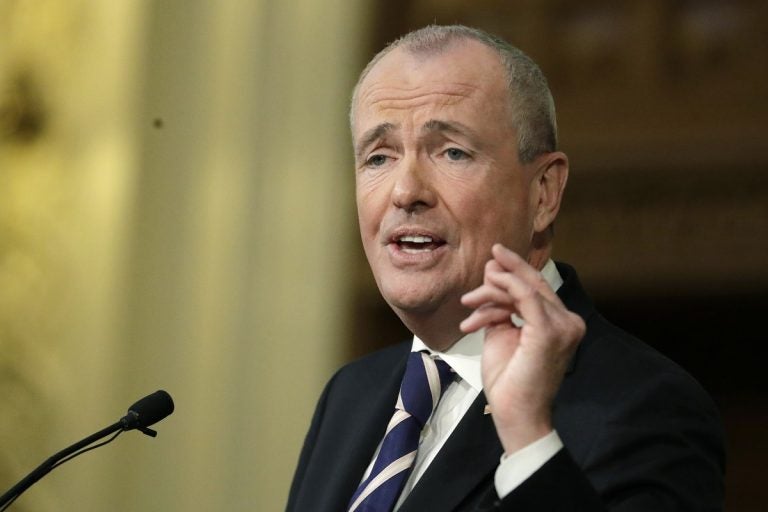Gov. Murphy signs law requiring mental health coverage parity by insurers
The new measure requires insurers to cover mental health care to the same extent and degree as physical health, and expands the conditions that qualify.

New Jersey Governor Phil Murphy. (Julio Cortez/AP Photo)
Health insurers in New Jersey will have to cover mental health treatment to the same extent and degree as care for physical health issues, under a bill Gov. Phil Murphy signed into law Thursday.
The New Jersey law adds heft to the federal 2008 Mental Health Parity and Addiction Equity Act, which requires insurers to treat mental health conditions the same as physical ones. The Affordable Care Act, passed in 2010, also emphasized this requirement, but in both cases implementation was left to the states.
The new law requires insurers to send an annual report to the New Jersey Department of Banking and Insurance to prove they are living up to the federal law. It also expands the definition of mental health conditions that must be covered to include eating disorders, obsessive-compulsive disorder, post-traumatic stress disorder, and autism and other developmental disorders.
Murphy said the law will improve patient care.
“This new law will help us to deliver access to mental-health and substance-use services on par with any other medical service,” he said, “whether they have purchased coverage through the individual marketplace or received it through their employer.”
Mental health advocates praised the measure, calling it an important step in getting patients the treatment they need.
“Mental health has not really been accepted as a part of the health care system,” said Carolyn Beauchamp, CEO of the Mental Health Association of New Jersey. “It’s always been seen as something separate. You don’t see it in a microscope, you can’t operate on it, it’s very different.”
This law, she said, chips away at that notion.
“Whenever you introduce transparency, you’re opening things up to people understanding, people being more trusting, and people feeling more included, and that’s very important.”
The law sets up a framework for transparency. The next step will involve implementation, and Beauchamp hopes organizations like hers will be a part of that process.
“We will hope and work at making sure that community players are involved in those decisions because we know what’s happening out here,” she said, “and that would be very helpful as they decide how to implement this.”
Very few states have implemented mental health parity laws at the state level. Beauchamp called California the “gold standard,” but most other states have lagged behind.
Phil Lubitz, director at the New Jersey chapter of the National Alliance on Mental Illness, said the new law sends the state to the front of the pack.
“It essentially puts New Jersey in the forefront of assuring that people are going to receive the mental health and addictions treatment that they are entitled to under federal law,” he said.
As part of the law’s implementation, the Murphy administration is also launching a Parity Listening Tour, to hear from residents across the state and provide information about behavioral health coverage.
“Not only are we committed to improving access to health care, but we are clearing the way for individuals who need treatment for mental health and substance use disorder,” said Department of Banking and Insurance Commissioner Marlene Caride, whose department will be leading the listening tour.
Beauchamp said society still needs to confront other issues that stand in the way of mental health treatment — namely stigma and, in the case of substance abuse, criminalization. But she noted that the new law will start to chip away at some of those barriers, too.
“When your insurance covers something, that’s a big step toward reducing stigma,” she said.
WHYY is your source for fact-based, in-depth journalism and information. As a nonprofit organization, we rely on financial support from readers like you. Please give today.





